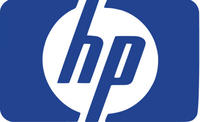-
Google Apps more secure with two-step verification
More and more companies are migrating their e-mail and other cloud services over to Google Apps — but the doubts about whether making such a transition would put company security at risk linger; now the company is doing something about it: Google announced early Monday the availability of two-step verification, a more secure way for Google Apps users to sign into their accounts
-
-
MI5: Cyber espionage on the rise, but can be easily beaten
MI5 says the Internet has made the threat of espionage by foreign countries higher than ever before, but insisted it is “relatively straightforward” to block attempts to steal data; MI5 has previously written to the bosses of big British companies to warn them of the threat online, particularly from hackers with links to the Chinese intelligence services
-
-
Sector Report for Thursday, 16 September 2010: Cybersecurity
This report contains the following stories.
Plus 3 additional stories
-
-
Pentagon lacks effective doctrine to guide cyberwarfare operations
There has been much talk recently about cyber warfare, and the Pentagon has even created a new U.S. Cyber Command — but the GAO says the U.S. Defense Department lacks the doctrine needed effectively to guide cyberwarfare strategies
-
-
Security standards for smart grid evolve
Digital technology in the smart grid measures and distributes the delivery of electricity to consumers and has the potential to reduce energy use and costs for consumers as it’s deployed in more areas of the country; security experts say, however, that the new network will offer new avenues for criminals to infiltrate, corrupt and steal data
-
-
U.K to increase spending on cybersecurity
U.K. defense minister that cuts in information security spending are not on the agenda for the Strategic Defense and Security Review (SDSR), which is due to report back in the autumn; on the contrary, Britain is looking to boost its capabilities in the area
-
-
Vulnerable IT infrastructure means loss of revenue
Europeans businesses are losing approximately 17 billion Euros a year in revenue owing to IT disruptions; on average, European businesses suffer IT failures lasting an average of fourteen hours per company a year, amounting to nearly one million hours of down-time costs
-
-
GTEC buys Zytel, bolstering cyber, intelligence capabilities
GTEC pays $26.8 millions in cash for Maryland-based Zytel; little is known about Zytel’s actual products — all the company’s work is classified and all employees are cleared at the Top Secret/Sensitive Compartmented Information level — but it develops cybersecurity and mission systems in support of the critical intelligence, counterterrorism, and cyber-warfare missions of its national-security clients
-
-
The most pressing cybersecurity issue
According to Red Hat’s Gunnar Hellekson the most pressing cybersecurity issue is “the threat that comes from our reactions to real and perceived threats…I see this growing ‘Fortress America’ movement around computer security and the security of the software-supply chain”
-
-
HP to buy security software company ArcSight for $1.5 billion

Hewlett-Packard agreed to buy security software company ArcSight for $1.5 billion; ArcSight’s software helps companies protect their digital assets from cyber attacks and fraud, and aids in regulatory compliance. While many analysts said HP overpaid, they also said the deal fits with its broader enterprise strategy. Some, though, questioned the company’s financial discipline; the deal is the latest in a rash of consolidation in the security technology sector; last month, Intel Corp agreed to buy McAfee for $7.7 billion, and in May, Symantec Corp bought Verisign Inc.’s payment authentication unit for about $1.3 billion
-
-
EMP threat to U.S. should be kept in perspective
In 1962 the United States conducted a high-altitude nuclear test above Johnston Island, 825 miles southwest of Hawaii; detonated 400 kilometers above the island, the resulting nuclear blast knocked out street lights across Hawaii and tripped circuit breakers, triggered burglar alarms, and damaged a telecommunications relay facility on the island of Kauai; could terrorist, or a nuclear-armed rogue state, launch an EMP Pearl Harbor against the United States?
-
-
Smartphone security products begin to make it to market
A modern smartphone has many of the same capabilities as a PC and is way more vulnerable to certain kinds of attack; even so, few smartphone users see security apps as essential; Austrian security testing lab AV-Comparatives has justreleased a study comparing four smartphone security products
-
-
Cloud computing addressing security issues
With cloud improvements such as Google’s “sharding” — the dividing of an individual file among hundreds of systems to prevent someone from gaining a useful amount of information out of individual documents — being implemented and followed closely by competing providers, security and accessibility will become cloud facets continually improved upon
-
-
ITU chief supports governments' need to access BlackBerry communications
In an interview with AP, ITU head Hamadoun Toure said RIM should provide law enforcement access to customer data; Toure characterized the governments’ needs as “genuine” concerns that cannot be ignored
-
-
Sector Report for Thursday, 2 September 2010: Cybersecurity
This report contains the following stories.
Plus 1 additional story.
-
More headlines
The long view
Researchers Develop AI Agent That Solves Cybersecurity Challenges Autonomously
New framework called EnIGMA demonstrates improved performance in automated vulnerability detection using interactive tools.
